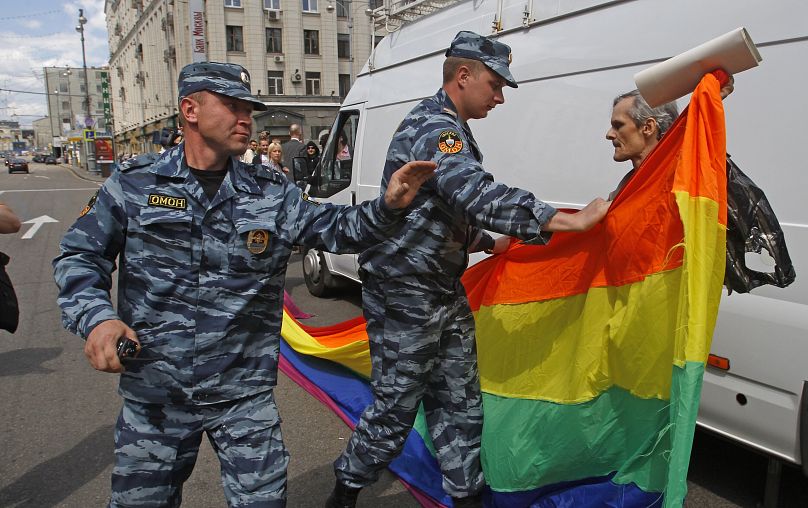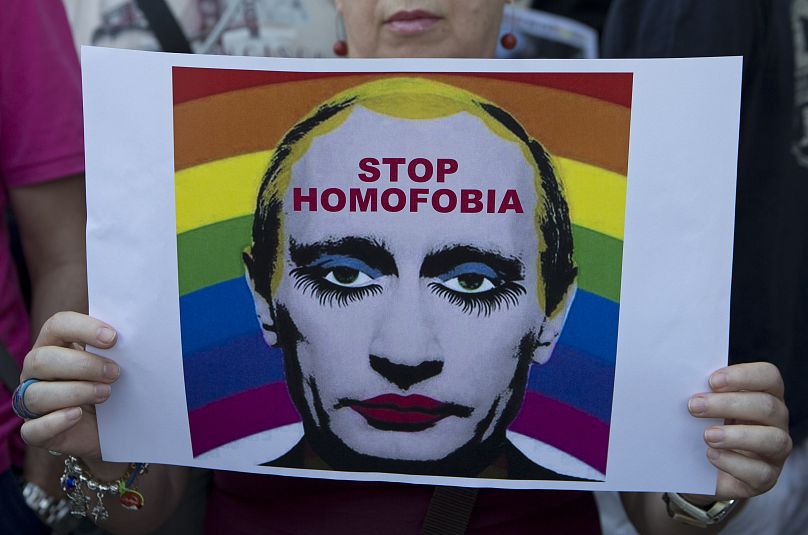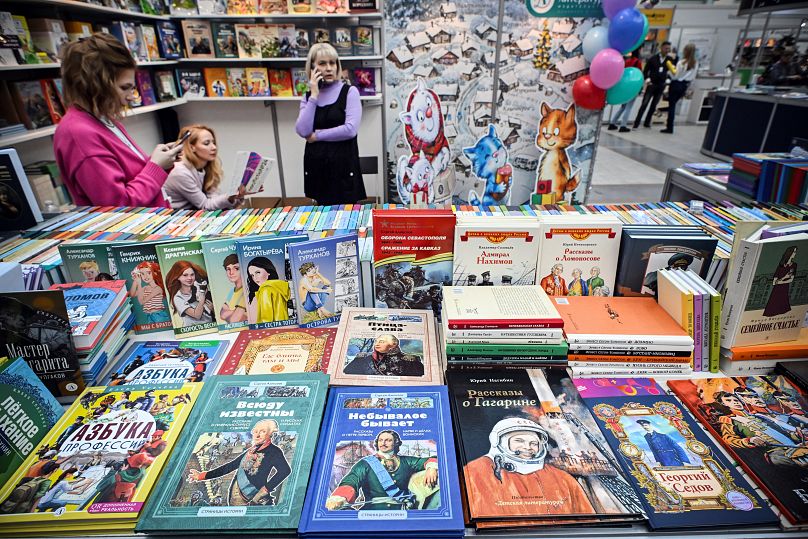Russia's first queer museum closes its door after Putin approves anti-LGBTQ laws
Russia's first queer museum has closed its doors, after Russian President Vladimir Putin on Monday signed the law that significantly expands restrictions on activities seen as promoting LGBTQ rights in the country.
 ADVERTISEMENT
ADVERTISEMENT
 ADVERTISEMENT
ADVERTISEMENT
Pyotr Voskresensky, an LGBT activist and historian from St. Petersburg's, opened the museum devoted to LGBTQ culture on 27 November.
The museum included three dozens objects, including sculptures, tableware and books, which help tell the repressed story of the LGBTQ community in Russia.
Now following the recently approved anti-LGBTQ laws, Voskresensly's museum is deemed illegal.
"I plan to send the collection abroad, so that it could be on display independently, or in association with a European queer museum," Voskresensky said.
Elsewhere, the recent bill will cause drastic changes in other Russian cultural instructions. It will affect online resources, theatre productions, films, video games, books and music festivals - and essentially make the topic of gay sexual orientation taboo in Russia.
What laws were passed?
Russian lawmakers on Thursday 24 November gave final approval to a bill that significantly expands restrictions on activities seen as promoting gay rights in the country.
The new bill is another step in a years-long crackdown on the country's embattled LGBTQ+ community.
The proposed legislation expands a ban on what authorities call “propaganda of non-traditional sexual relations” to minors, established by legislation dubbed the “gay propaganda” law.
It was adopted by the Kremlin in 2013 in an effort to promote “traditional values” in Russia.
This year, the lawmakers moved to ban spreading such information to people aged 18 and older.
The bill was approved in the third and final reading on Thursday by the State Duma, the lower house of parliament.
It has been nicknamed the "Answer to Blinken" law, after the US Secretary of State Antony Blinken criticised it as a "blow to freedom of expression".
Vyacheslav Volodin, Russian State Duma speaker responded to Blinken's comments:
“This is the best answer to Mr. (US) Secretary of State (Antony) Blinken. Don’t impose alien values on us. Have you destroyed yours (values)? We’ll see how it will all end, but it will definitely end sadly, because it's Sodom," he said.
"You can't call it otherwise. And the United States of America have become the center of this Sodom in the world. Let them live there, but don't bother us," added Volodin.
The law also broadens the existing restrictions by banning information about gender transitions to be spread to minors and bans information deemed to be propaganda promoting paedophilia.
Violations are punishable by fines and, if committed by non-residents, could lead to a 15 days’ detention and expulsion from Russia.
A return to Soviet-like censorship
Russian book editors now find themselves confronted with the growing censure, which imposes new restrictions on books made by "foreign agents."
Booksellers will have to hide controversial novels under plastic covers, something which Alexey Ilyin, founder of the Alpina publishing group, thinks will have consequences on what books are published.
"As of now, most of the publishers will take into account this law, when taking a decision on the publication of new books," said Ilyin.
"Most likely, they will just abandon such books, even if it's about some potential bestsellers," he added.
Russian publishers at a leading Moscow bookfair said they were "all very worried" by new restrictions and feared the return of Soviet-like censorship.
Yevgeny Kopyov, of the large Eksmo publishing house, said he was worried by the "broad interpretation" of the LGBTQ propaganda law. He warned that it "may affect a large amount of literature, including the classics."
"Everything will depend on our interaction with the regulatory authorities," he concluded.
Many publishers like Kopyov are waiting for authorities to clarify what they believe is LGBTQ "propaganda" or not.
But some bookstores in Saint Petersburg already got rid of "problematic" books by offering discounts of up to 50 percent, according to local media.
Tatiana Stoyanova, a brand manager for Kompas-Gid publishing house, said the restrictions could lead to a revival of the Soviet "samizdat" practise that saw the underground publishing of banned books.
"There is this mentality in Russia where the more prohibited it is, the more interesting," she said.













